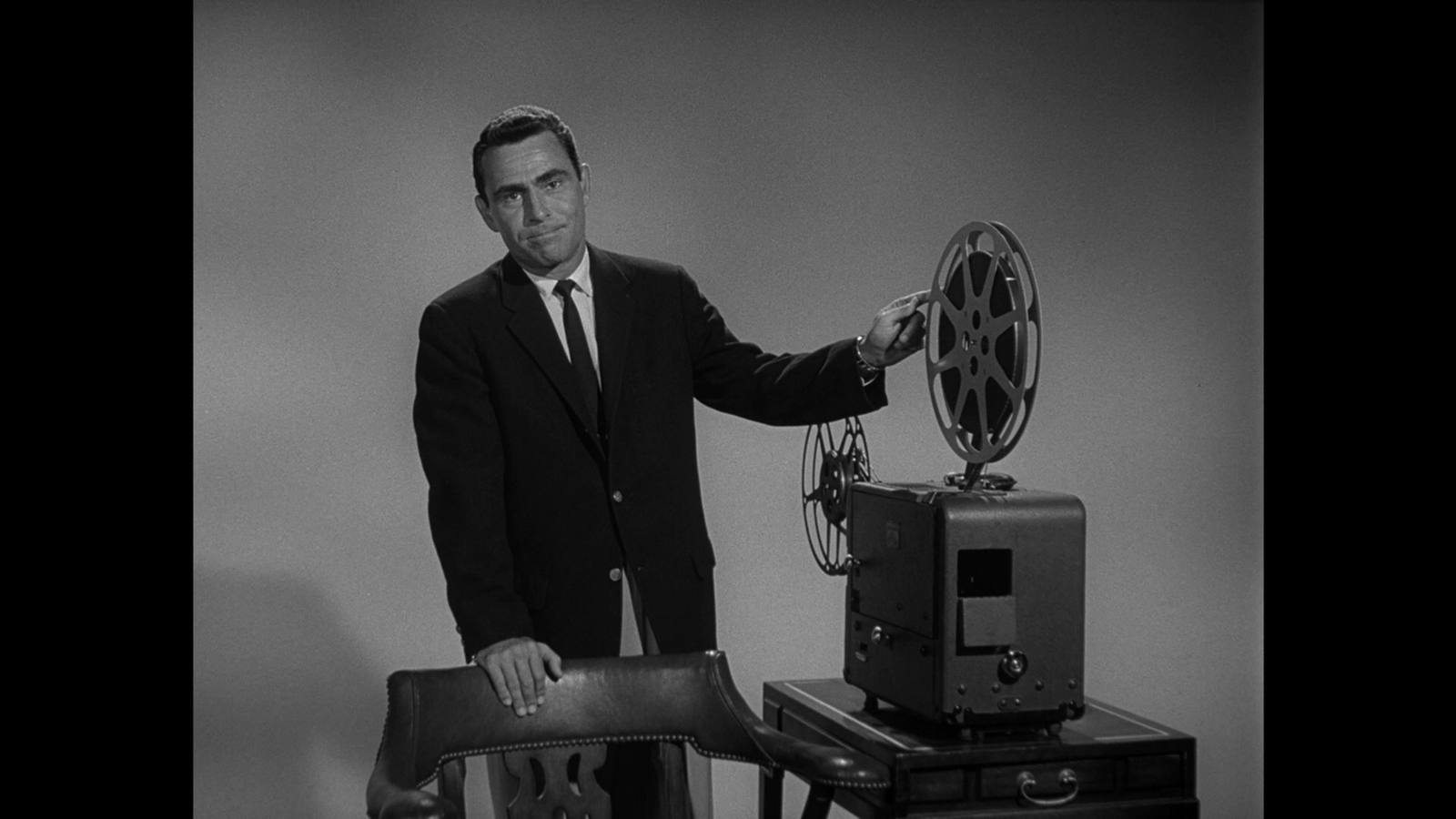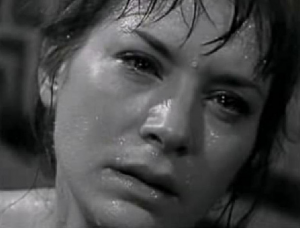Episode 75 – “The Midnight Sun”
[quote source=”” rating=”0″]The poles of fear, the extremes of how the Earth might conceivably be doomed. Minor exercise in the care and feeding of a nightmare, respectfully submitted by all the thermometer-watchers in the Twilight Zone.[/quote]
As a television producer, Rod Serling was known as the “Angry Man” of Hollywood, unlike his colleagues in the television industry, Serling was never willing to allow the imposing studio to constrict his artistic goals. The Midnight Sun is one of my favourite episodes of The Twilight Zone, not only because of it’s brisk pacing and strong acting but because it is a prime example of Serling using a seemingly outlandish concept to mislead censors away from his true message. At the same time he had the foresight to know that audiences then, and later, would be able to detect the true meaning. Serling’s progressive nature also allowed for many female actresses to play roles unavailable anywhere else in the industry. Here, Lois Nettleton plays Norma, a strongly independent woman who courageously faces impending doom while caring for an elderly woman and fending off a mad looter.
Serling Stamp of Morality. The story takes place in an apocalyptic version of 1961 where the world has spun off course towards the sun. Each day grows hotter and the population of the world has nothing to do but wait for the inevitable. Unlike “The Shelter”, this episode depicts an apocalypse of natural causes where guilt and responsibility don’t factor in. Although it features a similar sense of inescapable doom as “The Shelter”, this time we follow two women who maintain their rationality, compassion, and optimism rather than descending into monsters. Still, no Twilight Zone apocalypse would be complete without barbarians which prompts the radio to warn residents of the mad looters that wander the streets. By this time, the police have all but abandoned them in favor of managing the massive traffic jams of people fleeing north in a futile effort for salvation. The episode becomes a battle of the sexes as a brutish man breaks into Norma’s home, easily steals her weapon and some water. Realizing what he has become, the looter reveals that he is not a cruel savage who has shed his humanity in the name of survivalism, he is just lost and without his family, he curses the slow death humanity is doomed to endure and leaves in anguish.
Real world connections. Naturally, like the best Twilight Zone episodes, the apocalypse here is nuclear, but this time, only indirectly. The notion of “mutually assured destruction” in the Cold War led the people of America to assume that one nuclear attack would result in the complete decimation of both America and the USSR, as if it would be over in the blink of an eye. This is a fear that was often exploited by The Twilight Zone, but here Serling proposes a more accurate, and freshly terrifying perspective. The abstract glow in the sky drives everyone from the looters to the local radio host insane. This kettle of a world mimics what a nuclear bomb might do to nearby communities while other bombs hang in the air, waiting to drop. The anxiety of impending doom mixed with, or replaced by, the devastation of nuclear fallout would create a panic state of disillusionment and fatigue by the few survivors.
Spell it all out at the end. Projected early and loudly into the episode, Norma says she has the feeling she is just dreaming this horrific scenario and will awaken in a cool, dark living room. The scenario is one that most people would cope with by imagining it a non-reality, but when the episode ends with exactly that happening, it feels like Serling is seeing how much he can get away with, and in this case he can’t justify it. Fortunately, the episode is involving to keep the audience distracted from the obvious last minute twist. When it does come, however, we discover Norma is now in a world where the planet is spinning away from the sun, and her dream of a hot world was brought on by a “high temperature” cold. A bit heavy-handed, but Serling remedies this with his outro statement, describing the story as one about the “poles of fear”. We briefly get a glimpse of another kind of nuclear devastation, a nuclear winter that is much calmer than the immediate aftermath, but just as devastating. For a moment, a delirious and ignorant Norma is thankful for the cool temperature and calming dark, but we know that her fate will be similarly horrific and drawn-out as it was in her dream. It is as T.S. Eliot said, “not with a bang, but with a whimper”.

